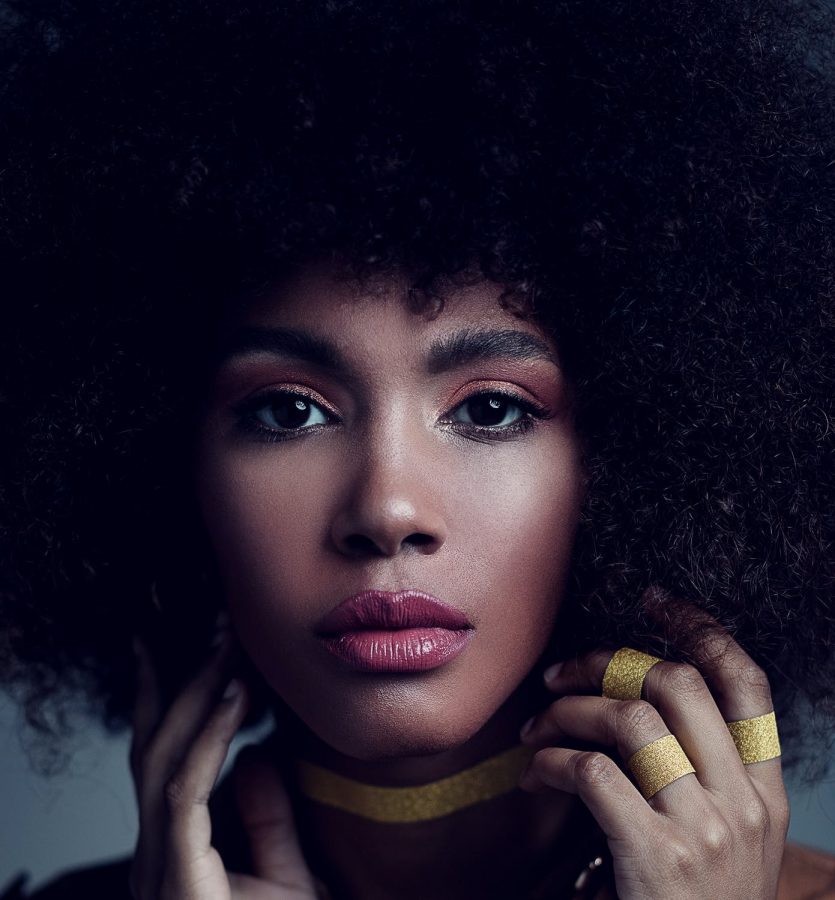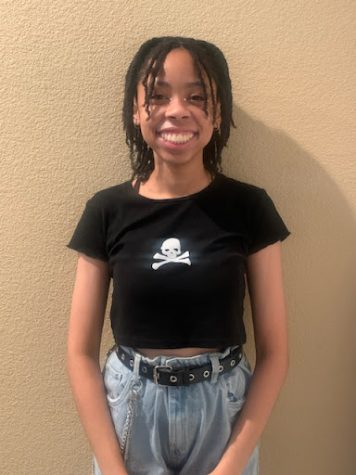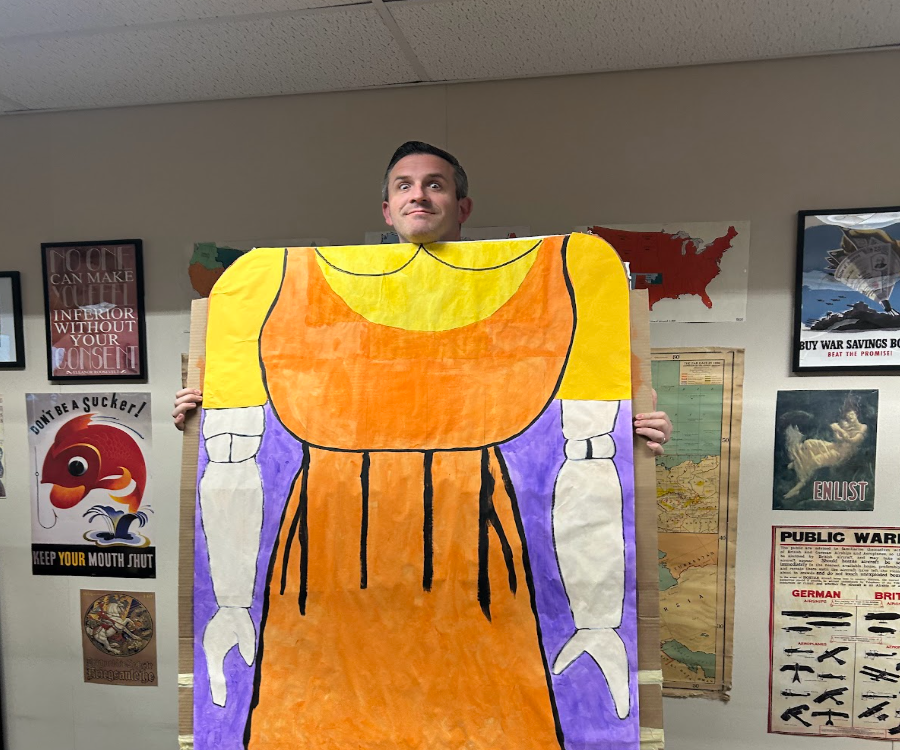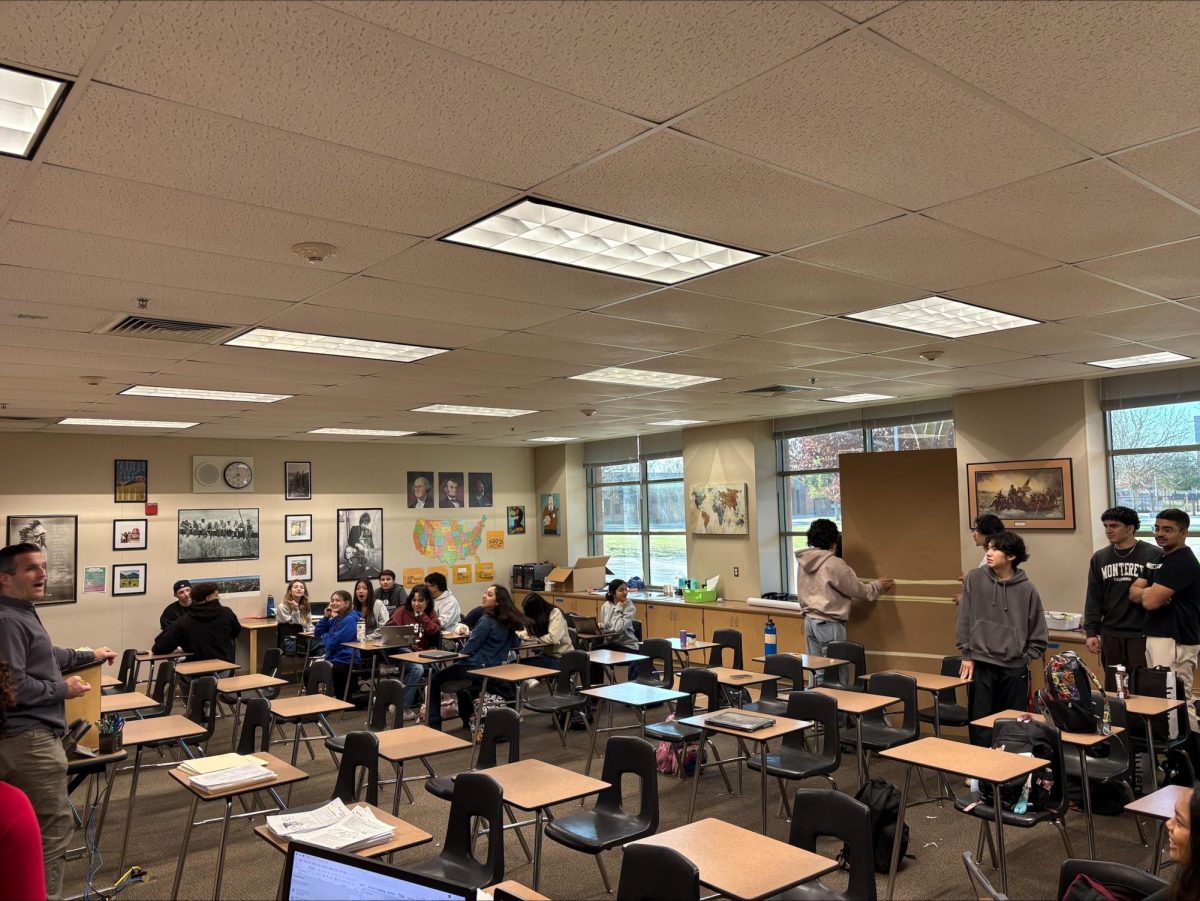The Beauty and Struggle of Natural Hair
How black women are ostracized for something so valuable to their culture
December 15, 2021
Just about every culture has something unique they value. It holds great significance and makes them different from everyone else.
In the black community, natural hair is one of those things we value. It’s a huge part of our identity.
According to an article titled, What Is Natural Hair? A Definition and In-Depth Look, in terms of black hair, natural hair is hair that hasn’t been altered by chemical straighteners, including relaxers and texturizers. It ranges from wavy to kinky-coily.
That means it can be drier to the touch than other hair textures, and fragile. Black hair requires high maintenance; it needs consistent moisturizing and as little heat as possible to maintain.
I, for example, have type 4 natural hair. It’s naturally dry, soft, and very thick. It’s very kinky and strands of my hair form tight curls. This means my hair is prone to shrinkage. In order to keep it healthy, a lot of care is required. My full hair routine can range from 3 to 6 hours from washing to styling.
It took me a long time to see the beauty in my hair. But, it didn’t help that a lot of people didn’t attempt to understand its importance.
I specifically remember in elementary and middle school people would always tell me that I should straighten my hair. When I finally did, someone in my class told me that I should keep my hair straightened because I looked “prettier” that way.
I’m not sure what their intentions were in saying that, but it was extremely hurtful. Everyone only seemed to have “nice comments” to say about my hair when it looked like theirs. And they were so backhanded and unnecessary.
I also recall being told multiple times that my natural hair looked “weird.” Someone I didn’t even know came up to me just to let me know that I was wearing a wig. When I insisted that it was my real natural hair, they laughed at me and demanded I stop lying.
I was devastated and started believing I looked ugly with my natural hair. This led to me resenting everything about being black. I hated my identity because I knew I could never be as pretty as everyone wanted me to be.
The United States has this beauty standard and anyone who doesn’t fit it is automatically seen as out of place, odd, weird, etc. People only want to accept what they are used to or comfortable with. I, for one, don’t fit that standard because it was not made for me to fit. I don’t have straight, blonde hair and never will. And I was constantly ridiculed for it.
The thing is too, it’s not just me; so many black women have been made fun of because of their natural hair. People call it nappy, ugly, unkempt. We’re not seen as beautiful when our hair isn’t a certain way.
Many of us are also unable to get jobs or be taken seriously. We are forced to straighten it in order to fit in, so a lot of us have grown up resenting our natural hair. We were too scared to embrace the beauty it holds because of the hate society gave us.
This is seen in many aspects of everyday life. According to an article titled Cosmetology Students, Hairstylists Describe a Race Divide, it’s possible to receive a cosmetology license without ever working on black hair. Some cosmetology schools don’t really teach how to work on black hair and if they do, it’s not prioritized and barely mentioned during training. They really only teach styles and looks designed for people of European descent.
So, when many hairstylists are hired for models, actresses, or just any customer, they often get flustered when it’s a black woman with natural hair because they have no idea what to do. They say it’s too difficult to work on.
Many black women are forced to learn how to do their own natural hair, which can be difficult because there are not a lot of resources for the natural hair community. They often have to travel far and pay tons of money to get their hair done by someone who is knowledgeable. That option can be a struggle because it can be hard to find someone who does natural hair well, and if that stylist cancels on you, then you’re kind of stuck.
I just want to know why you should be allowed to call yourself a “professional hair stylist” if you can’t work on all hair types?
I’m so lucky that my mother is well informed on natural hair. She had to learn by herself and made sure to instill that knowledge into me. However, many other black women don’t have that same support.
It’s extremely unfortunate because black natural hair is so beautiful and interesting. It’s our crown. It makes us queens. We can do so much with it. We can rock a big, full afro that has so much volume, cornrows that are skillfully braided one at a time, braids that are a great protective style, and so much more. Black women deserve better than what we’ve gotten from people in the world.
I hope that people start to take the time to understand and be respectful about natural hair. It’s okay to ask questions, just be polite. Hairstylists should also really take the time to learn about natural hair. Black women should be able to walk into any hair salon just like anyone else and leave feeling satisfied.
It took me a while, but I would never trade my natural hair for anything else. Can it be difficult to manage at times? Of course. Do I still get ignorant comments about my hair? Absolutely. But I’ve learned to love it. My ancestors and activists today have worked too hard for me to not embrace its beauty.
Black natural hair is angelic and magical. It will always be, never forget that.





Henrietta • Dec 16, 2021 at 7:48 pm
Excellent read…I’m very proud of wearing my natural hair. And other race always want to touch it or just amazed of the different styles I can wear without ever going to a shop. Just my natural hair. I love it
Pamela • Dec 16, 2021 at 8:58 am
Thank you for your courage to share your feelings. You are so right on everything. How much better would this world be if we all embraced who we are and allowed others to do the same?
Terry • Dec 15, 2021 at 8:23 pm
I grew up in the era where we did everything possible to blend and conform to what ‘society’ deemed acceptable. Your observations of past and present behaviors are very accurate. Having lived what you’re expressing allows me to reflect and embrace change. I am so happy to see that this generation understands that we have to educate ourselves by embracing not only our natural beauty, but our internal ideals as well.
SLeak • Dec 15, 2021 at 4:38 pm
Awesome!!!!
ZMOBMO • Dec 15, 2021 at 1:32 pm
Let’s get it this article is fire and totally represents black woman and their natural hair and that they don’t need to fit in to societies beauty standards